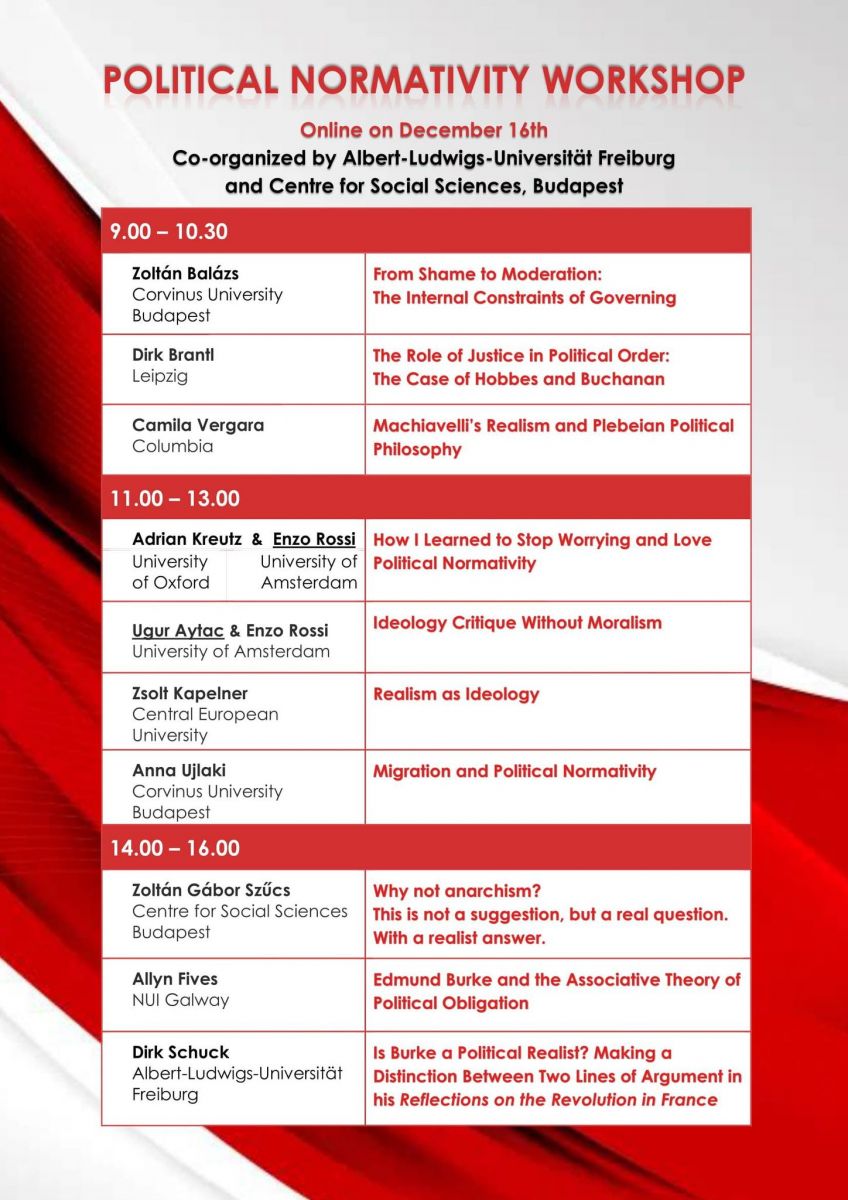A realista politikaelmélet kortárs népszerűsége ismét a figyelem középpontjába állította a politikai normativitás problémáját: azt a gondolatot, hogy a politika egy autonóm társadalmi szféra, saját normákkal, amelyek nem vezethetőek vissza külső morális forrásokra. Ez a gondolat kedvelt céltáblája a realizmus kortárs kritikusainak is, akik tagadják az önálló politikai normativitás létét. Ugyanakkor az alapprobléma sokkal régebben ismert a politikai gondolkodás történetében és nem is feltétlenül szükséges a sajátos politikai normativitás képviselőiben egy egységes realista hagyományt konstruálni Machiavellitől Hobbeson át a mai napig. A workshop célja éppen az, hogy történeti és politikaelméleti perspektívákat egyesítve tárgyalja a politikai normativitás kérdését, s megmutassa, hogy miként lehetnek kölcsönösen megtermékenyítőek a történeti és analitikus vizsgálódások a másik terület kérdéseinek vizsgálatában.
The revival of realist political theory drew new attention to the problem of political normativity. Contemporary realism is often characterized as a defense of politics as an autonomous sphere of social activity with a special set of norms. The autonomy of politics is generally understood as a separation of the normativity of politics from moral normativity. Critics of realism like to choose the problem of political normativity as the main target of their criticism even if contemporary realists seem to be much more reluctant to identify their position with a defense of a genuinely political normativity.
Be that as it may, the problem of political normativity has a much longer history than contemporary realism and it can be reasonably argued that the possibility (or fear) that the norms of politics are not the same as the norms of morality or they can come even into conflict with each other seems one of the central topics of modern political thought at least since Machiavelli. We do not need to construe a realist tradition or to pick a specific formulation of the problem to accept that the possibility of a distinct political normativity and its potential subversive effects on morality pose a constant challenge to modern political thought, and it is a challenge that needs to be again and again addressed and dealt with in different ways in various contexts. It was a relevant problem in the times of Hobbes and Hume as much as for Burke or Wollstonecraft or for Marx, Weber, Lukács or for Rawls, Shklar, Williams or for us today.
The aim of our workshop is to combine historical and theoretical perspectives in order to explore the difficulties and importance of studying the problem in its historical variety and ask how today's concerns about political normativity can affect our historical investigations as well as how we ourselves should address this problem today.



